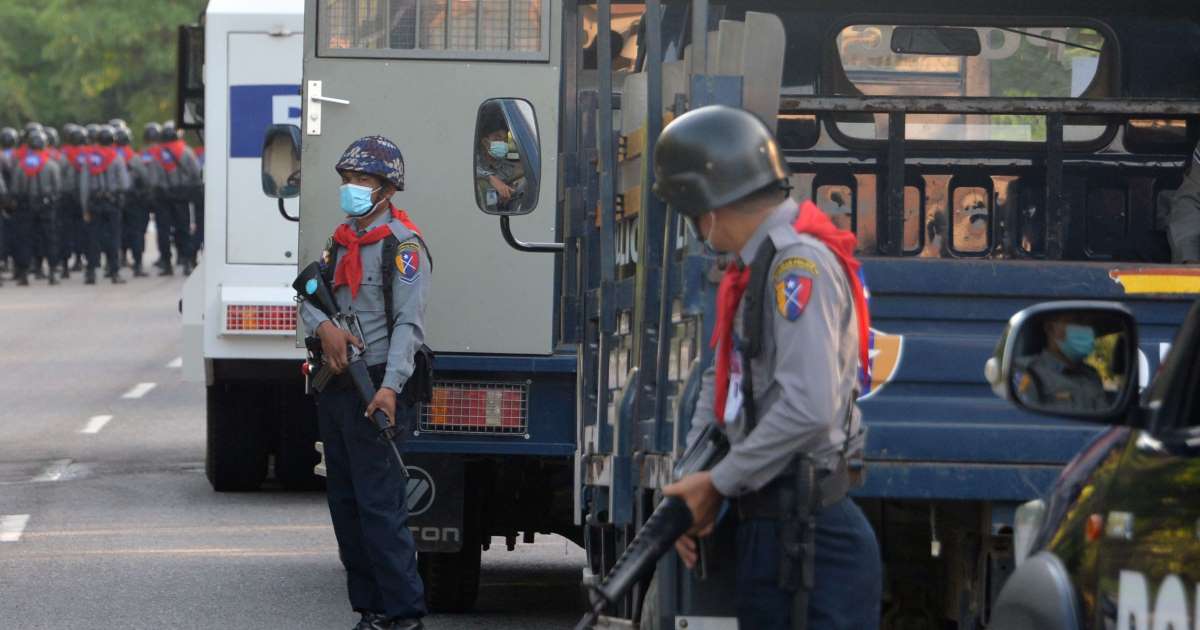
In dozens of countries, governments rely on Internet shutdowns to hide repression
Deliberately cutting off or slowing access to the Internet, in fact, has become increasingly common. In 2019, the #KeepItOn coalition recorded 213 incidents of Internet shutdowns across 33 countries.
Our recent work suggests that shutdowns pose three major challenges for protest movements. Here’s what you need to know.
Protest movements rely increasingly on the Internet
When access to the Internet is shut down, people mobilizing against the government find themselves cut off from essential coordination tools, such as messaging apps, alert systems and crowdsourced protest maps.
Protest movements tend to grow rapidly and spontaneously without much prior in-person organization, making it difficult for protesters to revert to offline communication during an Internet blackout. As they become more established, many protest movements rely heavily on digital channels to reach new supporters.
Beyond coordination obstacles, shutdowns often are linked to violent repression. In a recent study, we analyzed how Internet accessibility enabled government-sanctioned violence in Syria. Throughout the Syrian conflict, the government of Bashar al-Assad has tightly controlled access to the Internet. While some of the country’s 14 governorates (a regional distinction) - such as Damascus and Latakia - have largely remained connected to the Internet, others have regularly been subjected to severe limitations and shutdowns.
Regional data on where the Internet is accessible, as well as data on more than 65,000 lethal attacks by government forces on civilians between 2013 and 2015, suggest that the government deliberately limits Internet access when conducting military offensives that result in indiscriminate violence.
Our findings also suggest the Assad government adapted its repressive strategy to the realities on the ground. In opposition-controlled areas, Internet shutdowns were more frequent and coincided more often with indiscriminate military offensives.
It’s not just Syria - coordination between military action and regional network blackouts has become more commonplace in other countries. Last month, the Ethiopian government announced it would take retaliatory action in the northern region of Tigray and simultaneously cut Internet access and regular landline telephone service before launching the military offensive.
For opposition groups, the Internet is an essential lifeline
Anti-establishment protests from Iran to Belarus also count on the Internet to help draw international attention to their demands and demonstrate resolve. Cutting Internet access essentially cuts their lifeline to the outside world.
Iran shut down the Internet to stop protests. But for how long?
This was the scenario in Iran in November 2019. As tensions mounted, the government cracked down on protesters and cut off access to the global Internet. First cellular data, then fixed-line connections went dead. Leaked evidence shows that the government deliberately held off from reconnecting the country until after protests had ceased.
The shutdown made it extremely difficult for witnesses inside Iran to share information in real-time with the outside world. The extensive Iranian diaspora had limited ways of checking whether friends and family had been harassed or arrested. International human rights groups and journalists were unable to monitor the violence as it unfolded. This meant that initially the number of people killed during the protests was hugely undercounted. It is likely that the government sought to avoid a repeat of the global media attention during the country’s 2009 protests. .
The Internet is essential to documenting violence
Internet shutdowns also help cover up violence by security forces that would otherwise be broadcast to the world. In the Tigray region of Ethiopia, for instance, news outlets and human rights organizations have been largely unable to monitor the situation. Without documentation, it becomes more difficult to debunk disinformation and misinformation on both sides.
Our work shows how documentation is affected long after the Internet has been restored. In a new report, we analyzed more than 100 verified videos collected from social media and messaging apps during last year’s protests in Iran. The videos show security forces using lethal force, often shooting protesters and bystanders, including children. The descriptions of injuries cited on 24 death or burial certificates support allegations from protesters that authorities operated an indiscriminate “shoot-to-kill” policy.
Even though many of the killings took place in public, the government has kept many details hidden. Amnesty International spent six months identifying details of more than 304 men, women and children killed by government troops, far more than the total documented deaths reported by The Washington Post directly after the protests. The true death toll may never be known.
What this tells us is just how hard it is to document government repression, serious human rights violations and crimes during an Internet blackout. Even after Internet access resumed, many people didn’t post photos and videos that reflected the extent of the protests or the violence. Some witnesses said they deleted photos and videos because they feared arrest, detention or prosecution - leaving evidence of the crackdown suppressed.
How women helped rally mass protests against Nigeria’s police corruption
When documentation of government violence is hindered through shutdowns, it becomes more difficult to hold the perpetrators accountable. But the immediate effects are also evident. For protest movements specifically aimed at pressing for policy change surrounding the security forces — including the Black Lives Matter movement in the United States and #EndSARS in Nigeria - sharing videos that provide evidence of excessive force has been integral to the ability to mobilize supporters and fight for justice.
While protesters are finding new ways to resist information blackouts, the increased use of shutdowns threatens the future of protests as we’ve come to know them.
Anita R. Gohdes is professor of international and cybersecurity at the Hertie School, Berlin. Find her on Twitter @argohdes.
Sophie Dyer is the Amnesty Decoders project manager at the Evidence Lab at Amnesty International and an affiliate of the Berkman Klein Center of Internet & Society at Harvard University. Find her on Twitter @sophiecdyer.
Likhita Banerji is a researcher/adviser on technology and human rights at Amnesty International.











